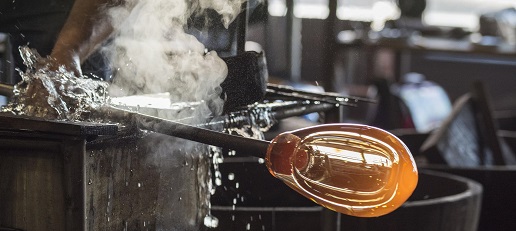
THR's opinion
Industrial Tourism – Important For Destinations?
Industrial tourism – or visiting sites related to industrial production - is a class of tourism less traditional than the typical “sun-sea-sand” offering, but provides a niche product with an increasingly dedicated following.
The segment supports tourism and economic development for destinations, often as a supplement to a more standard touristic offering or even in some cases as a full substitute for destinations that have limited traditional tourist attraction.
What really is industrial tourism?
Industrial tourism revolves around visiting and promoting destinations or locations that are associated with industrial production, either past or current. In the case of the former, and example would be shuttered mining towns or factories, and in the case of the latter, functional production facilities such as the Murano glass factory in Venice, the Airbus A380 factory in Toulouse, the Guinness Factory in Dublin, or even locations that provide cultural insight into a manufactured product, such as the World of Coca Cola experience in Atlanta.
Industrial tourism is often viewed as a sub-set of cultural tourism, though as tourism and itineraries become more bespoke and personalized industrial tourism offers a viable alternative for travelers seeking options beyond traditional categories of tourism like beaches or skiing.
Is industrial tourism a useful visitor strategy for destinations?
Industrial tourism can benefit destinations in a number of ways:
Compensate for lack of traditional tourism
- Industrial tourism can be particularly useful for locations which do not have the luxury of more traditional tourism attractions such as beaches, mountain hiking, cities with a large cultural offering, etc.
- By highlighting their industrial assets, these regions can still build a visitor offering around less conventional tourism.
Associate a region with a particular high-quality product
- Meissen, Germany, has been closely identified with a high-quality porcelain product for centuries. The town has built a significant tourism strategy around ceramic production, which serves to provide hundreds of jobs and promote the location to potential visitors.
- Similarly, the Penedes region of Spain is the most important wine-producing area of the northeast region of Catalonia, intimately associated with vineyards and high-quality wine production, much like Napa Valley in California.
Mitigate seasonality issues
- Most leisure travel happens in summer, especially to destinations with a focus on sun-sea-sand. Industrial tourism, on the other hand, is generally less dependent on the elements and may even be a more enjoyable experience in the off-season.
- For some destinations, this may serve to mitigate the drop in visitors and their revenue outside of the busier summer season.
Attract across segments
- Some people simply don’t like going to the beach. Industrial tourism is one class of activity that can appeal across multiple segments – individuals who are not interested in a sea vacation, those focused on culture, school groups, seniors looking for alternatives to skiing or trodding across sand, etc.
- Some destinations may already have an established visitor base around a traditional offering, in which case industrial tourism sites may just be complementary. Perhaps visitors would not go to a destination explicitly to see an industrial tourism offering, but once at the location would consider including it in their itinerary.
- Visitors coming to a destination for a second time and looking for new experiences may also take advantage of industrial tourism offerings during this new round.
Contribute funds to cultural maintenance
- In the case of defunct industrial sites like an abandoned factory which may still be an important cultural or historical landmark, it can often be challenging for a municipality to justify the cost of its upkeep. Income from visitors to the site, however, can support self-financing for repairs and other maintenance.
Should the sector pay more attention to industrial tourism?
Industrial tourism is unlikely to ever grow faster or become a more important segment than traditional activities like summer beach holidays, however it will continue to grow as a niche offering.
As travelers demand ever more personalized, unique experiences, industrial tourism may satisfy the needs of some travelers with a broader base of interests. Tour operators and agencies would do well to consider offering specialized packs to these groups.
As tourism continues to adapt and change, so too will industrial tourism. Innovations like augmented reality could create a scenario where visitors could “see” a site in its current state and compare it with what it once looked like.
In sum
- Industrial tourism is a niche tourism offering that highlights a destination’s industrial production assets, either current or past.
- While limited in scope, the sector has loyal visitor segments, in particular those who wish not to or are unable to take advantage of more traditional sun-sea-sand offerings.
- Industrial tourism can bring substantial benefit to a region, for example by providing a tourism offer in destinations where one currently does not exist, highlighting a region’s star products, attracting a broader range of visitors, mitigating seasonality, and providing income for the preservation of the physical industrial assets.
- While industrial tourism will never surpass traditional offerings in scale, the segment is growing and will continue to provide value to destinations.
Article by THR Senior Director Benjamin Rhatigan